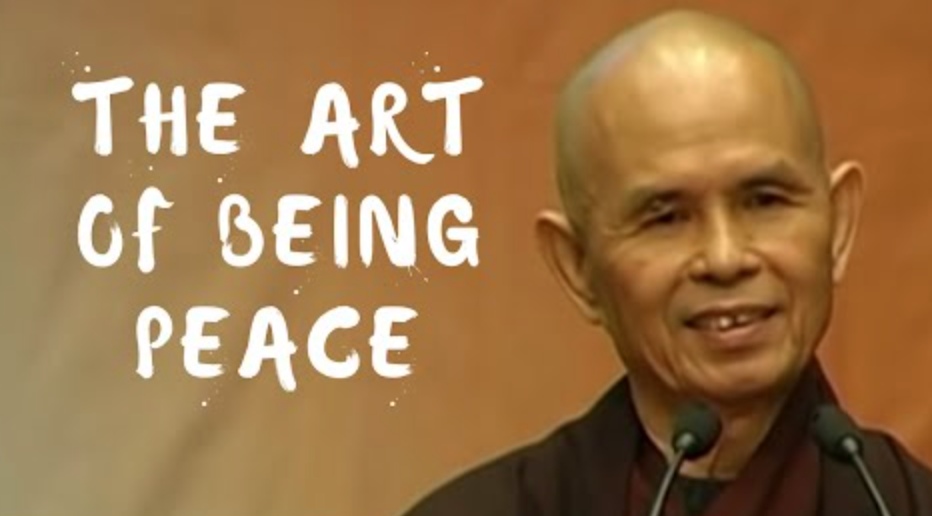by Thich Nhat Hahn.
The Buddha taught that this is like this, because that is like that. You see? Because you smile, I am happy. This is like this, therefore that is like that. And that is like that because this is like this. This is called dependent co-arising.
Suppose you and I are friends. My well-being, my happiness depend very much on you, and your well-being, your happiness depend upon me. I am responsible for you, and you are responsible for me. Anything I do wrong, you will suffer, and anything you do wrong, I have to suffer. Therefore, in order to take care of you, I have to take care of myself.
There is a story in the Pali Canon about a father and daughter who performed in the circus. The father would place a very long bamboo stick on his forehead, and his daughter would climb to the top of the stick. When they did this, people gave them some money to buy rice and curry to eat. One day the father told the daughter, “My dear daughter, we have to take care of each other. You have to take care of your father, and I have to take care of you so that we will be safe. Our performance is very dangerous.” Because if she fell, both would not be able to earn their living. If she fell, then broke her leg, they wouldn’t have anything to eat. “My daughter, we have to take care of each other so we can continue to earn our living.” The daughter was wise. She said, “Father, you should say it this way: ‘Each one of us has to take care of himself or herself so that we can continue to earn our living.’ Because during the performance, you take care of yourself only. You stay very stable, very alert. That will help me. And if, when I climb, I take care of myself, I climb very carefully, I do not let anything happen to me. That is the way you should say it, Father. You take good care of yourself, and I take good care of myself. In that way, we can continue to earn our living.” The Buddha agreed that the daughter was right.
So we are friends, and our happiness depends on each other. According to that teaching, I have to take care of myself, and you take care of yourself. That way we help each other. And that is the most correct perception. If I say only, “Don’t do this, you have to do that,” and I don’t take care of myself, I can do many wrong things, and that does not help. I have to take care of myself, knowing that I am responsible for your happiness, and if you do the same, everything will be all right. This is the Buddha’s teaching about perception, based on the principle of dependent co-arising.

Leave A Comment